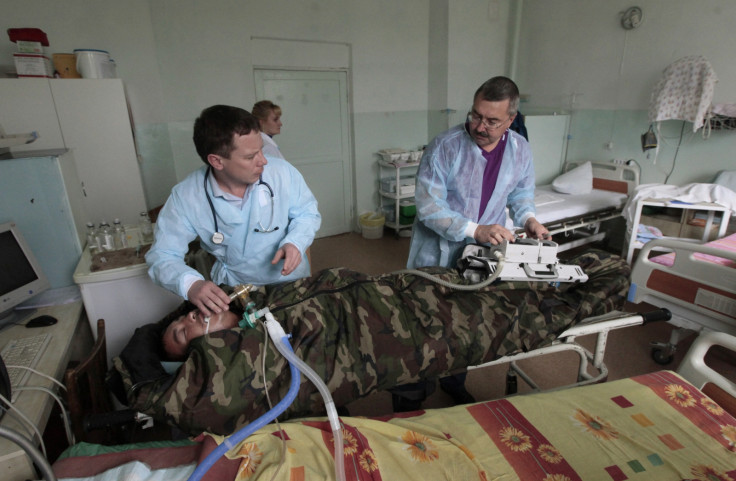Russian state doctors earn less than McDonald's workers
Figures show that since Putin came to power in 2000, the number of hospitals has halved.

The number of hospitals in Russia has halved since Vladimir Putin has been president with doctors earning less per hour than the average McDonald's worker, according to statistics that showcase the state of the country's health system.
A report shows that doctors, who have to undertake at least seven years training, get paid an average of 140 roubles (£1.97) an hour, compared with the 146 roubles (£2.06) an hour a supervisor at the fast food chain gets.
The health independent monitoring foundation also found that among 7,500 doctors working in 84 regions, around half earn less than 20,000 rubles (£281) a month per position, RBC reported. Mid-level and lower level medical staff get an hourly rate of between 72 and 82 roubles (£1.01 and £1.15).
Foundation director Eduard Gavrilov said hospital bed numbers have declined by 100,000 since 2013 but that the beds were being used more efficiently.
The Centre for Economic and Political Reform (CEPR) in Moscow found that between 2000 and 2015, the number of hospitals throughout the country have dropped from 10,700 to 5,400. It said if the closures continued at such a rate, by 2022, there will be fewer hospitals by then than there were in 1913, before the Russian Revolution.
The CEPR report shows that there were nearly 13% fewer outpatient clinics in 2015 than there were in 2000 when Putin came to power.
The CEPR report said: "The planned manoeuvre for shifting the workload and resources from hospitals to outpatient clinics did not actually take place. The situation became more complex both in the fields of inpatient and outpatient care."
Russians are entitled to free healthcare but they usually have to take out medical insurance, which the report said was ineffective in the country.
"It is necessary to raise the issue of reforming insurance-based medicine and partly returning to the principles of organizing and financing the medical network that existed in the Soviet Union," the report said.
Hospitals in the main cities of Moscow and St Petersburg are considered to be of a good standard, but this quality decreases in the regions which are beset with a lack of funding.
A survey carried out in 2014 by the pollster the Levada Centre found that only 4% of Russians are satisfied with the country's healthcare system.
© Copyright IBTimes 2024. All rights reserved.






